The United States may have become increasingly insular both in terms of economic policy and foreign and security policy, returning to an isolationist phase that it has lived through time and again.
But as the world's largest and still globally important economy, it continues to have an impact on the fortunes of big and small economies around the world.
What the US government, Congress and the country's macroeconomic authorities do has a bearing on currencies, markets, and capital and trade flows around the world.
Can the recent spurt in economic growth in the US be sustained and can the American economy survive without a steady infusion of cash from its central bank?
What implications will it have for the world economy? Can Washington's politicians reach a consensus on managing economic policy?
...
What the world economy really needs?
The US' central bank (the Federal Reserve or Fed for brevity), which had drip-fed the economy $600 billion by buying bonds for the market in exchange for cash quantitative easing or QE for the technically minded between November 2010 and June 2011, seems to think the current revival of growth can be sustained without another bout of QE.
QE2, the second round of monetary easing following the market crash of 2008, ends this month. In its monetary policy meeting last Wednesday and Thursday, the Fed decided not to extend it or go in for a new programme. Thus, QE3 seems unlikely in the near future.
How has the Fed justified this decision despite the US economy's obvious problems? First-quarter GDP growth clocked a meagre 1.8 per cent, the unemployment rate is over 9 per cent and the housing market remains moribund.
The Fed, for one, acknowledges that growth for the year would be softer than expected earlier (it revised its forecasts for 2011 from 3.1-3.3 per cent range down to 2.7-2.9 per cent), but it expects "the pace of recovery to pick up over coming quarters".
...
What the world economy really needs?
Image: Federal Reserve Chairman Ben BernankePhotographs: Jonathan Ernst/Reuters
Besides, Fed Chairman Ben Bernanke and his cohorts at the central bank have been emphatic that QE2 was specifically designed to fend off deflation risks that had emerged last year.
With a steady rise in both headline and core (shorn of energy and food prices) inflation figures, these risks have dissipated.
One could take this a step further and argue that were the Fed to continue with quantitative easing, it would end up doing more harm than good.
Easy dollar liquidity created by the Fed has helped push global commodity prices, setting off a global inflationary spiral and rising inflation expectations in the US.
The latter has fed through to US interest rates, and bond yields are at the same level as they were at the start of QE2.
...
What the world economy really needs?
More cash in the economy could, ironically, push up inflation expectations and interest rates further and defeat the very objective of an expansionary monetary policy - that of stimulating the economy through lower interest rates.
That said, the possibility of another liquidity infusion later in the year cannot be ruled out if the economy stumbles.
The US government has run out of policy options to prop up the economy. Policy interest rates are at zero and the Republican opposition's insistence on fiscal rectitude rules out another fiscal stimulus.
Mr Bernanke once accused the Japanese of "self-induced paralysis" by not pumping enough cash into the depressed Japanese economy. He might well have to counter the symptoms of paralysis in his own economy through another booster shot of liquidity yet again.
...
What the world economy really needs?
Unfortunately, the uncertainty over monetary policy isn't the last of the US' woes. The Federal government is all set to breach its sanctioned debt limit of $14.29 trillion and Congress will have to vet an increase in this ceiling by August 2 for the business of government (including borrowing in the markets to service debt) to continue.
This would be a minor technical matter were it not for the impasse between the Democrats and the Republicans on how to consolidate debt going forward.
While the Obama administration and the Democratic party have proposed a strategy based on tax increases and expenditure, the majority of Republicans want to put the burden of fiscal consolidation on expenditure reduction alone.
According to the Republican formula, tax rates and tax expenditures (the catch-all phrase for the plethora of extant tax subsidies) should continue and deep cuts in "discretionary non-defence spending" will have to do the trick.
...
What the world economy really needs?
Thus, they would acquiesce to vetting an increase in the debt ceiling only if the Obama administration were to accept their demands.
Such spending cuts will fall on social security and Medicare, which have been at the heart of President Barack Obama's policy reform initiatives, so this would be a bitter pill for the current administration to swallow.
If a bipartisan resolution does not emerge by the time of the deadline, the US government runs the risk of defaulting on its debt obligations.
Surprisingly, financial markets (including the hypersensitive credit default swap market) have been remarkably indifferent to the prospect of an outright default.
Thus, they seem to have put their money on a resolution emerging soon enough. Besides, some debt analysts believe that even if the impasse continues, there is no reason the US government would miss an interest payment on its bonds.
...
What the world economy really needs?
Photographs: Pichi Chuang/Reuters
The treasury has considerable leeway over who it pays first. So, it could pay bond-holders and hold back social security payments and force Federal employees to go on leave.
However, whether there exists a technical default or not, a shutdown in the US government is bound to roil the markets and spark another wave of risk aversion in financial markets, which would ultimately hurt both the US and global growth. Therefore, it is imperative for both parties to get off their high horses and seek a consensus.
One possibility is to allow for a small increase in the debt ceiling by the August deadline and keep negotiating further increases.
...
What the world economy really needs?
Photographs: Brendan McDermid/Reuters
This is clearly inefficient and will simply compound the uncertainty and anxiety that already prevail.
A significant increase of around $2 trillion is ideal and will give the administration enough time to get its act together on its consolidation plan.
Governments, financial institutions and investors around the world must hope that US politicians will take a more long-term view, set aside party political differences and work towards a new "Washington consensus" - a political consensus on domestic economic policy.
...
What the world economy really needs?
Sustaining growth in the US, keeping the economy and the markets open, and remaining engaged with the world economy are in the interests of both the US and open economies and societies around the world.
The distressing aspect of the political impasse in the US is that American politicians are behaving like any other politician, thinking only of the next elections and not the next generation.
In ordinary times this myopia may not carry a heavy price, but in uncertain times like these US politicians must rise to the occasion, provide global leadership and adopt a more global and long-term perspective on what they must do to sustain and stabilise growth at home, so that they can, in the process, sustain and stabilise growth the world over.



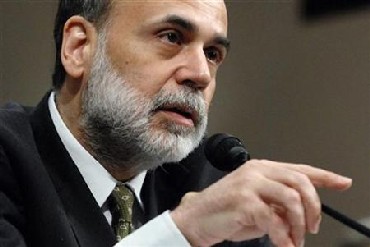
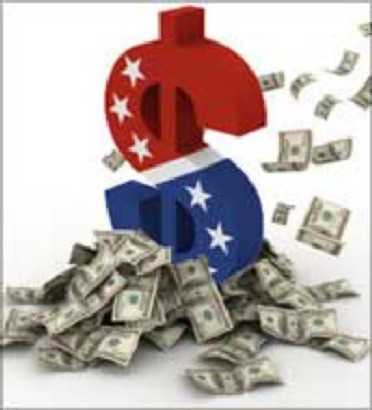

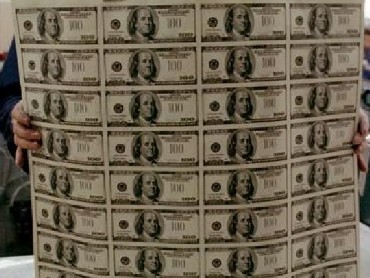
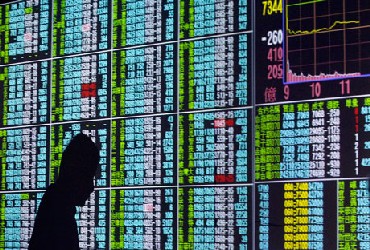
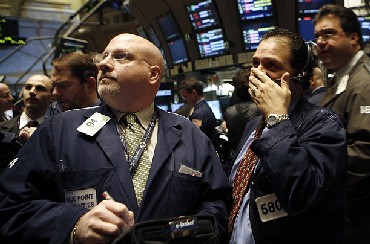
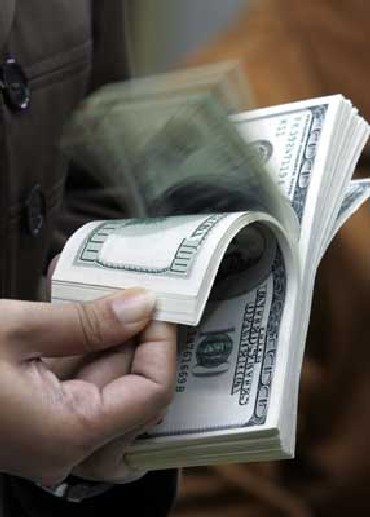

article